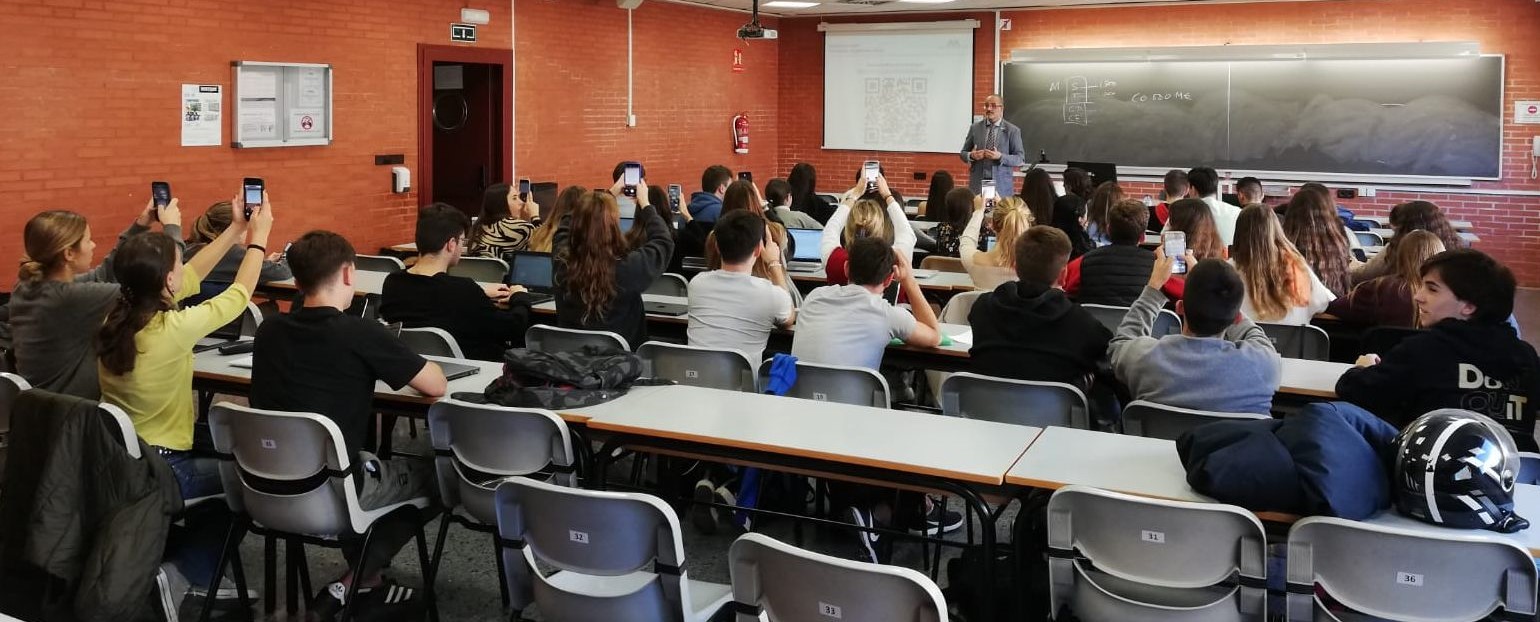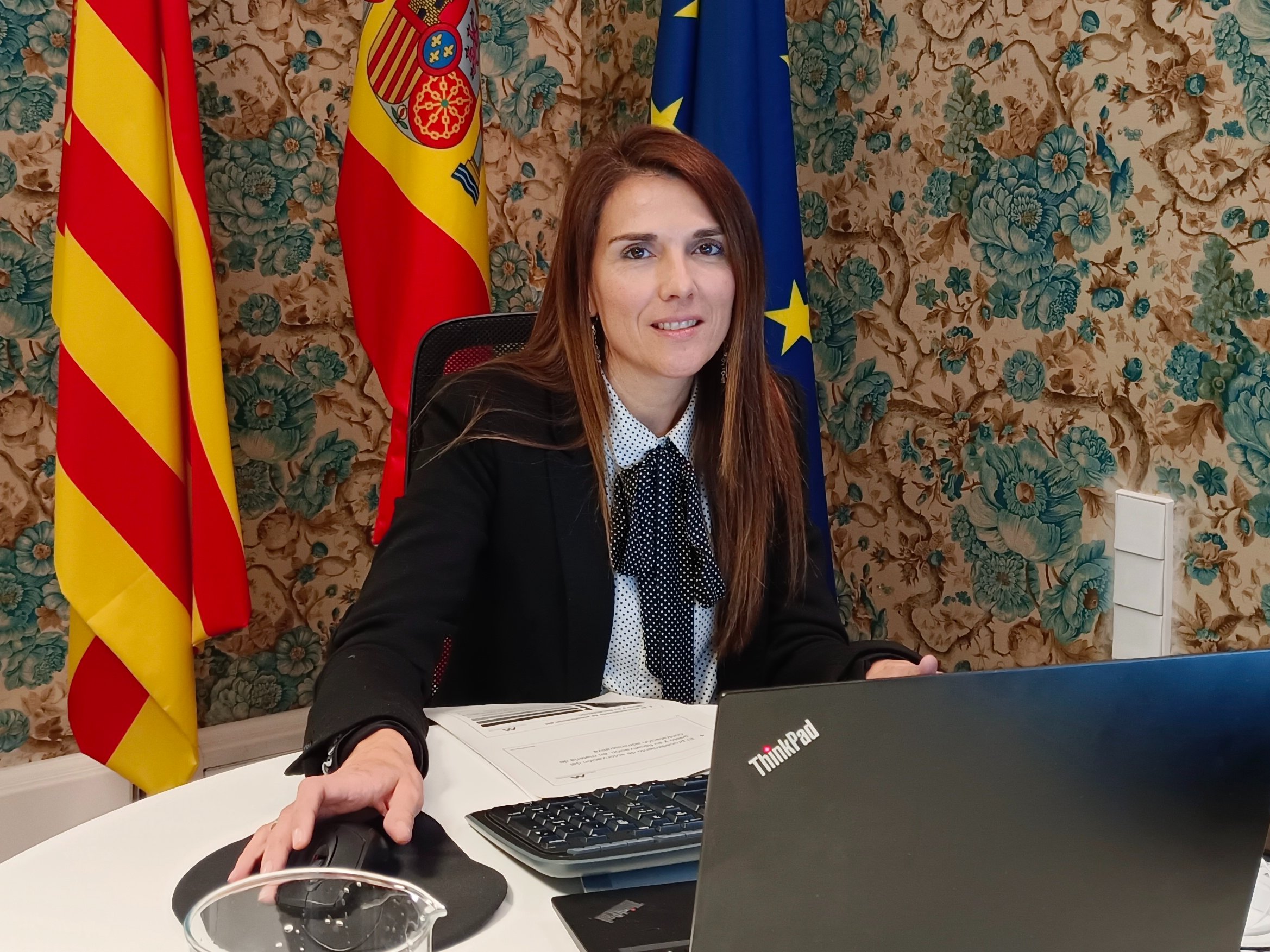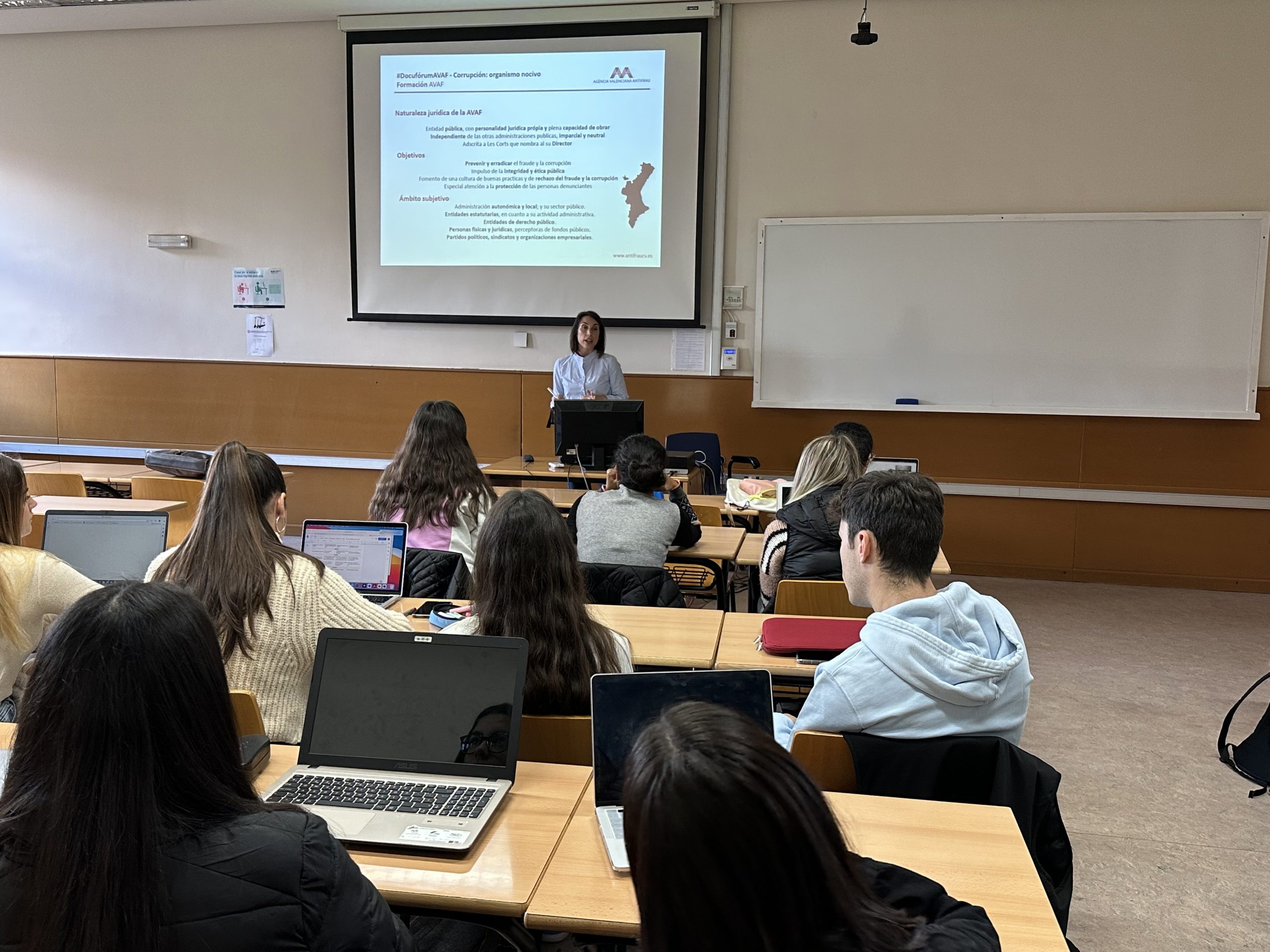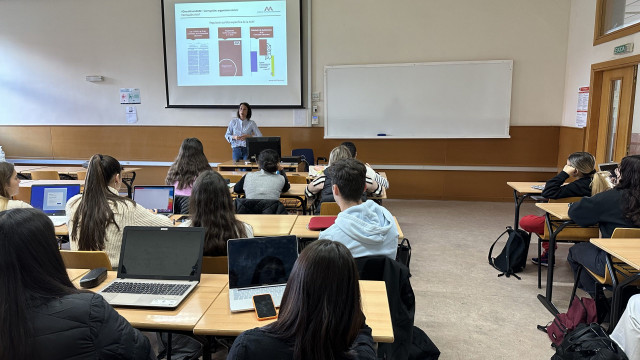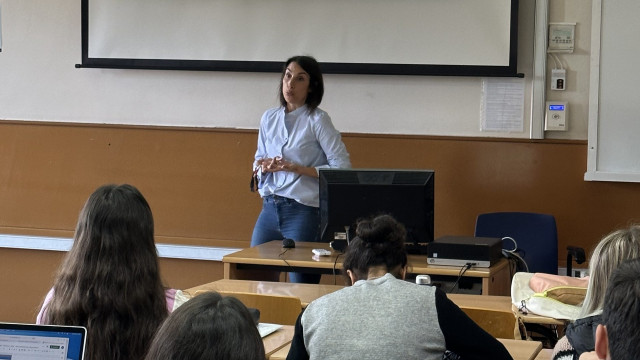#TrainingAVAF
The collaboration of the Valencian Antifraud Agency with the universities of the Valencian Community is more and more frequent. In the 2022-2023 academic year, the Faculty of Law of the University of Valencia has included the university Docufòrum activity in collaboration with the AVAF in the Center Innovation Project (PIC).
The #DocufòrumAVAF is an activity aimed at promoting the social culture of civic ethics, public integrity, fraud prevention and rejection of corruption among students of all University degrees.
On this occasion, a #DocufòrumAVAF was held at the Faculty of Law, on Thursday, November 25, 2022, with the participation of 45 students from the subject of Legal Theory of the Double Degree in Law and Economics, with the collaboration from Professor María Dolores Palomo Navarro. Anselm Bodoque Arribas was responsible for the AVAF to energize the session with the students.
After watching the documentary “Corruption: Harmful Organism”, the students ask questions, which in this case focused on the origin and causes of corruption, the social impact and collective costs it entails, the perception of corruption in our society and in other neighboring countries, or why there is no institution similar to the AVAF at the state level.
Subsequently, the AVAF representative discusses with the students the issues raised in their questions and others related to the need for greater public ethics and integrity, as well as prevention and civic training policies or the functions of the Valencian Anti-Fraud Agency and public policies to fight corruption.
The students especially insisted on the consequences of corruption in institutions and in our society, on the non-existence of a state agency, and on the prosecution of crimes of corruption. Likewise, the reception of gifts and the different types of conflicts of interest were discussed.
The activity has been organized in collaboration with the University of Valencia, which we thank for its interest and willingness to help create a culture of public integrity and rejection of fraud and corruption.
If you are a University, Secondary or Baccalaureate teacher and you are interested in having the training activity “Docufòrum: Corruption, harmful organism” carried out in your subject, do not hesitate to contact the Training Service of the Valencian Anti-Fraud Agency through formacion@antifraucv.es


